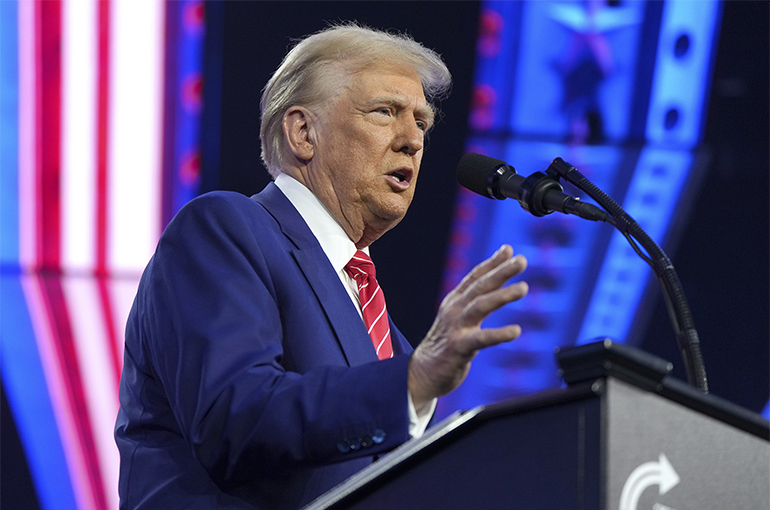 Trump Administration to Pivot to 'Economic Nationalism,' Fudan University Scholar Says
Trump Administration to Pivot to 'Economic Nationalism,' Fudan University Scholar Says(Yicai) Jan. 7 -- US President-elect Donald Trump's second administration will focus more on “economic nationalism," giving priority to the country’s own economic interests, according to the director of the Institute of International Studies at Fudan University.
The incoming Trump government will intensify trade protectionism and embrace unilateralism in foreign policy, regardless of international rules or multilateral mechanisms, Wu Xinbo said in a recent interview with Yicai.
Elected last November, Trump will take office as the 47th president of the United States on Jan. 20. His first term as president, which ran from 2017 to 2021, represented a significant break from traditional US leadership in areas such as trade and diplomacy.
Wu expects a number of key changes in China-US relations under Trump. For example, areas of exchange and cooperation between the two nations may gradually dwindle, while friction may increase. Finding ways to mitigate the impact of Trump’s policies on the relationship and exploring a sustainable model for coexistence will test the wisdom of both sides, he noted.
Excerpts from the interview are below:
Yicai: Import tariffs are one of Trump’s favored trade policy tools. Do you think tariffs will become a universal policy tool for implementing his "America First" agenda?
Wu: Trump likes to play the ‘tariff card,’ using tariffs as a tool for virtually everything. For example, he could link tariffs to fentanyl or respond to BRICS countries’ efforts to ‘de-dollarize’ by imposing higher tariffs.
But the effectiveness of this strategy depends on the specific situation. Some countries have a trade deficit with the United States. Playing the tariff card could be disadvantageous for the US if the other party chose to retaliate.
During Trump’s first term, inflation was not a significant issue, leaving him with considerable room to impose additional tariffs. But with inflation now a pressing concern, the potential for major tariff hikes has diminished. As a result, Trump may gradually find the ‘tariff card’ less effective as a policy tool.
Yicai: How should Chinese companies respond?
Wu: While Trump has threatened to increase tariffs on Chinese goods to as high as 60 percent, various practical constraints make such a move unlikely to happen all at once.
Still, China needs to prepare for the worst. The country’s economic driving force, for instance, needs to rely more on the domestic market rather than exports, especially exports to the US. Additionally, Chinese companies should consider diversifying their export markets, including expanding into more third-party markets.
Tariff negotiations with the US should be closely tied to other issues, such as finance and investment. For example, Trump is very concerned about whether other countries continue using the US dollar or move toward ‘de-dollarization.’
As the world’s largest trading nation, China conducts the majority of its trade in US dollars. Although China has a trade surplus with the US, a considerable part of this surplus is used to buy US Treasury bonds. This actually supports the US dollar system and stabilizes the US economy.
Yicai: The US tech sector largely distanced itself from Trump during his first administration. But recently many American tech leaders have been meeting with him. Why the change, and how long could this ‘honeymoon period’ last?
Wu: The shift in the tech sector’s attitude toward Trump is mainly due to its disappointment with President Biden’s policies over the past four years.
Biden introduced a series of regulatory measures that hindered innovation, including restrictions on Chinese high-tech companies and curbs on US tech exports to China, which have been unfavourable to the US tech sector.
This time, the sector is turning to Trump, as he repeatedly pledged during his election campaign to deregulate the industry. Deregulation would benefit US tech innovation and development, which is why the industry is engaging with Trump often for this purpose.
As for how long this ‘honeymoon period’ may last, it will depend on whether Trump implements concrete deregulation policies after assuming office to address Silicon Valley’s concerns. I think Trump will introduce policies favorable to Silicon Valley, creating a more relaxed environment for market innovation.
Editor: Futura Costaglione